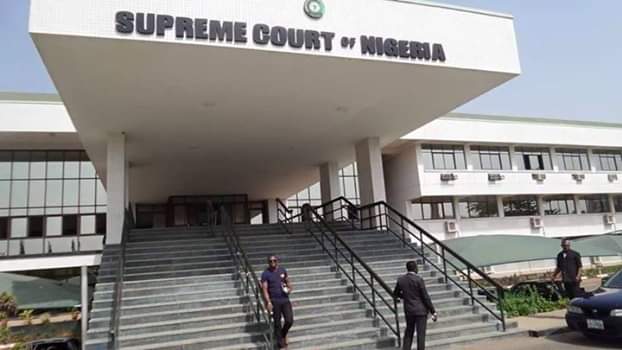
The Supreme Court has lived up to its billing as the final arbiter. Last week and yesterday, it maintained that its judgment is final. What aggrieved litigants have to embrace is reality.
Expectation about review of its verdict in the future would now amount to day-dreaming. The apex judicial institution of democracy has shown that it can never be intimidated, undermined, subverted, cajoled and twisted by any vested interest, including candidates, political parties, over-confident and overzealous counsel, and the electorate. Its primary goal is justice.
It has been a challenging moment for the Supreme Court. Never in the history of Nigeria has its ruling been subjected to political scrutiny by desperate politicians.
Following its judgment on the Imo State governorship election, the Peoples Democratic Party (PDP) organised a week-long protests, casting aspersions on the integrity of the justices. The protests were led by its national chairman, Prince Uche Secondus. Even, world bodies were inundated with complaints about imaginary gaps in the judgment.
Later, the PDP candidate, Emeka Ihedioha, approached the Supreme Court for the review of the judgment that cast him as an interloper and restored the mandate to his All Progressives Congress (APC) counterpart, Governor Hope Uzodinma.
To an extent, there was also a display of indiscipline by some armchair critics in the APC who were enveloped by emotion over the Supreme Court judgment on the Bayelsa State governorship poll.
Throwing caution into the wind, some rascals even attempted to invade the residence of Justice Mary Odili, who was a member of the panel. The harassment of her lordship was highly condemnable.
Later, the APC flag bearer, David Lyon, prayed the Supreme Court for the review of the verdict that made the PDP candidate, Douye Diri, the winner.
The two scenarios underscored the desperation of certain politicians for power by all means and at all costs. Why should politicians always trying to “find ways around it?”
It appears that the Supreme Court’s rules, particularly its conditions for judgment review, are beyond the ken and comprehension of many political actors.
The Supreme Court has not violated its rules. Politicians only displayed ignorance.
Indeed, there is no further appeal after the Supreme Court. But, the justices acknowledge that they are not infallible. Judgment review can only be contemplated if there are clerical mistakes in the judgment, or if, in the cause of delivering the ruling, there are accidental slips. The request for review can also be entertained, if and only if, the Supreme Court justices were misled to give the judgment.
In the two aforementioned cases, there was no evidence to suggest that these conditions were present.
The onus is on politicians to always moderate their partisan ambitions and refrain from pulling down the temple of justice in the face of unfavourable judgments. They should learn from the late sage, Chief Obafemi Awolowo, who after the judgment on the “twelve/two third,” accepted his fate. They should learn from Gen. Muhammadu Buhari, who embraced reality after failing at the court in 2003, 2007 and 2011.
Political actors should invest much confidence in the court as the final arbiter.
If political parties, candidates and politicians play by the rules, there will be less litigations, in the first instance.
For the judiciary, this time is also apt for sober reflection and stock taking.
The Supreme Court should be consistent in its judgments. Some laymen felt that, if Yahaya Bello could contest without a running mate in 2015, Degi’s candidature as Lyon’s running mate can be cancelled without affecting the victory of the governorship flag bearer.
There is no court beyond the Supreme Court. Review at that level cannot be premised on any political consideration. That was the message the apex court had passed to the political class. It is final.












